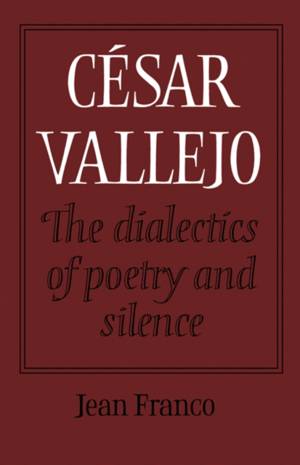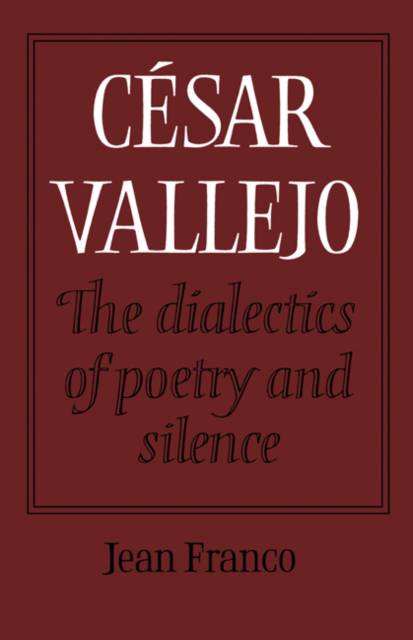
- Afhalen na 1 uur in een winkel met voorraad
- Gratis thuislevering in België vanaf € 30
- Ruim aanbod met 7 miljoen producten
- Afhalen na 1 uur in een winkel met voorraad
- Gratis thuislevering in België vanaf € 30
- Ruim aanbod met 7 miljoen producten
Zoeken
€ 67,95
+ 135 punten
Omschrijving
This 1976 book was the first full-length study in English of the poetry of the Peruvian César Vallejo (1892-1938). A major poet, who approached the problem of revolutionary aesthetics in a manner radically different from that of his contemporaries, Vallejo was comparatively little known outside the Spanish-speaking world. This neglect is attributable to the difficulty of a poetry which deliberately resists interpretation and assimilation into the established order of things. Professor Franco's book is therefore an exploration of the problems of poetic production. In the opening biographical chapter, she shows the kind of social constraints which limited what the poet could say, which led him in Trilce (1922) to write a hermetic poetry using euphemism, pun and indirection. She goes on to explore Vallejo's later poetry, which was shaped by the Spanish Civil War and gestures towards the tentative nature of humanity and civilisation that gives the poetry its abiding relevance.
Specificaties
Betrokkenen
- Auteur(s):
- Uitgeverij:
Inhoud
- Aantal bladzijden:
- 312
- Taal:
- Engels
Eigenschappen
- Productcode (EAN):
- 9780521157810
- Verschijningsdatum:
- 26/01/2012
- Uitvoering:
- Paperback
- Formaat:
- Trade paperback (VS)
- Afmetingen:
- 140 mm x 216 mm
- Gewicht:
- 399 g

Alleen bij Standaard Boekhandel
+ 135 punten op je klantenkaart van Standaard Boekhandel
Beoordelingen
We publiceren alleen reviews die voldoen aan de voorwaarden voor reviews. Bekijk onze voorwaarden voor reviews.











